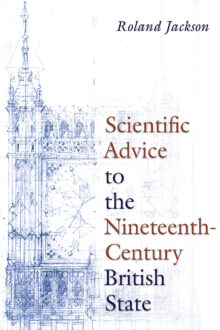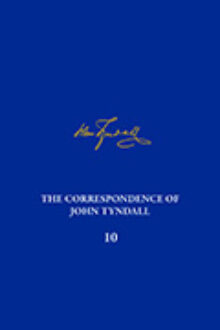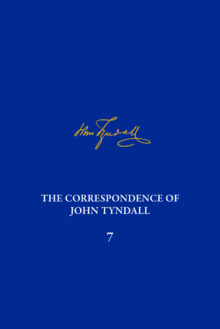
Roland Jackson
Roland Jackson is a historian of nineteenth-century science, an honorary research fellow at University College London, and a visiting fellow at the Royal Institution of Great Britain. His career has spanned scientific research, science education, science communication, science policy, and the history of science. He has been head of museum at the Science Museum London, chief executive of the British Association for the Advancement of Science, and executive chair of Sciencewise, which works across the UK government on policy relating to controversial issues involving science and technology.
Scientific Advice to the Nineteenth-Century British State
In twenty-first-century Britain, scientific advice to government is highly organized, integrated across government departments, and led by a chief scientific adviser who reports directly to the prime minister. But at the end of the eighteenth century, when Roland Jackson’s account begins, things were very different. With this book, Jackson turns his attention to the men of science of the day—who derived their knowledge of the natural world from experience, observation, and experiment—focusing on the essential role they played in proffering scientific advice to the state, and the impact of that advice on public policy. At a time that witnessed huge scientific advances and vast industrial development, and as the British state sought to respond to societal, economic, and environmental challenges, practitioners of science, engineering, and medicine were drawn into close involvement with politicians. Jackson explores the contributions of these emerging experts, the motivations behind their involvement, the forces that shaped this new system of advice, and the legacy it left behind. His book provides the first detailed analysis of the provision of scientific, engineering, and medical advice to the nineteenth-century British government, parliament, the civil service, and the military.
The Correspondence of John Tyndall, Volume 10
The Correspondence, January 1867–December 1868
The tenth volume of The Correspondence of John Tyndall spans from January 1867 to December 1868. It begins with Tyndall publicly enmeshed in a controversy that revealed his views on race, politics, and justifiable violence. Further pressure is exerted on him personally by the death of his mother Sarah, and the numerous calls on him to support relatives in Ireland. Michael Faraday’s death in August 1867 adds to these demands, as Tyndall assumes Faraday’s responsibilities at the Royal Institution. In this period, Tyndall writes his popular book Sound, as well as Faraday as a Discoverer, his memorial to Faraday.
Correspondence of John Tyndall, Volume 7, The
The Correspondence, March 1859-May 1862
The 308 letters in this volume cover a critical period in Tyndall’s personal and scientific lives. The volume begins with the difficult ending of his relationship with the Drummond family, disputes about his work in glaciology, and his early seminal work on the absorption of radiant heat by gases. It ends with the start of his championship of Julius Robert Mayer’s work on the mechanical equivalent of heat. In between, Tyndall carefully establishes his own priority for his work on radiant heat, and he accepts the position of professor of physics at the Government School of Mines. The lure of the Alps also becomes ever stronger. In this period comes perhaps Tyndall’s greatest mountaineering achievement, the first ascent of the Weisshorn, and a remarkable winter visit to Chamonix and the Mer de Glace. As his reputation grows, Tyndall continues to make his way in society. He is elected to the elite Athenaeum Club on January 31, 1860.



